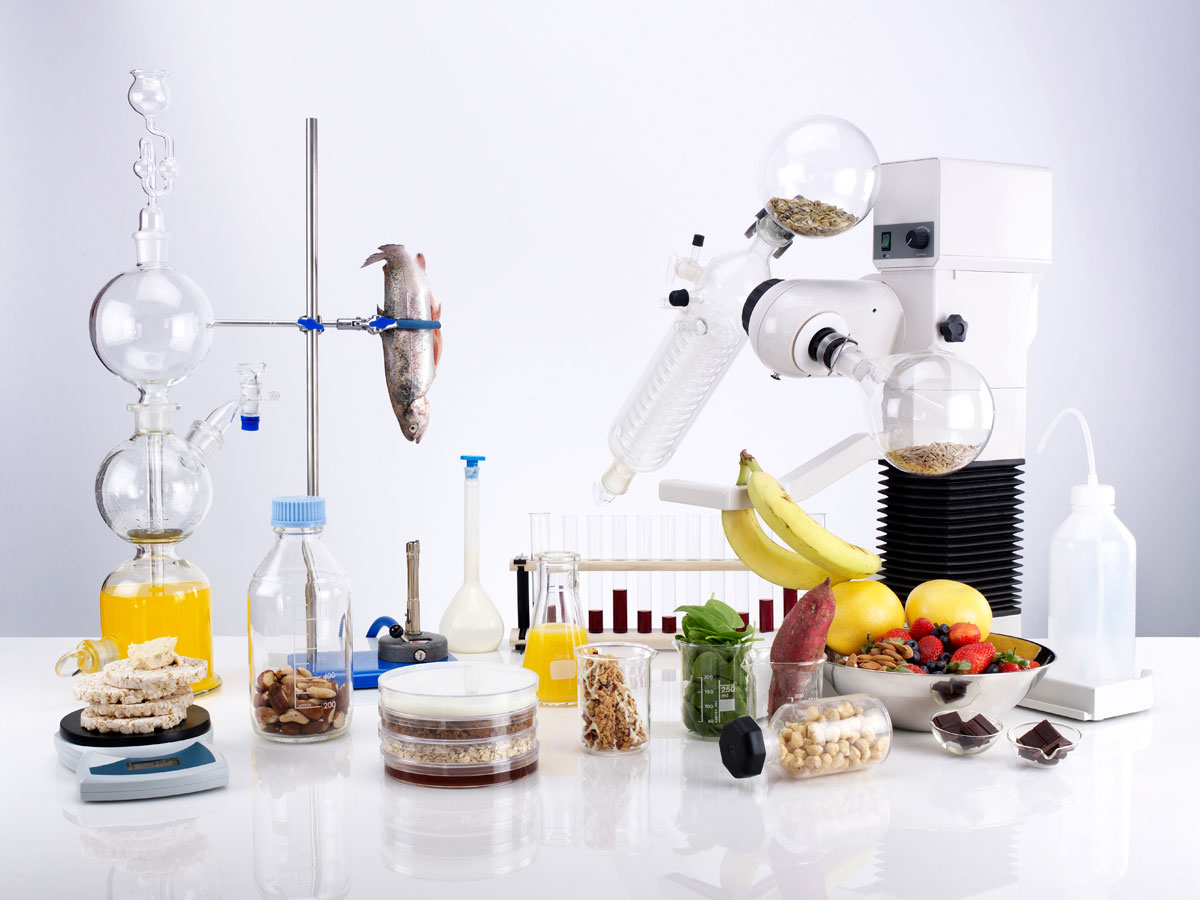
This course focuses on the basic aspects of food science and technology underlying the provision of a safe, nutritious, and abundant supply of fresh and processed food. Students are introduced to the functional properties and chemical reactions of major food components, as well as their nutritional qualities.
Fundamental concepts of various techniques used for preservation, processing, and packaging of foods are addressed. Students explore scientific principles for developing new food products, understanding conditions that impact food quality, and implementing food safety measures to ensure wholesomeness.
Informative modules build a foundational understanding of the role food science and technology have played in the development of modern society. The course highlights how food science addresses current issues and can promote nutritious and sustainable food choices for the future.
UNIT1. Food, its composition and properties. Nutrition principles of food.
UNIT 2. Food deterioration and microbial food spoilage. Food safety and the application of HACCP.
UNIT 3. Food processing methods, and packaging to retain quality.
UNIT 4. Food quality, aspects of sensory analysis and new product development.
UNIT 1 TOPICS
1. Understand the significance of food in our daily life
2. Nature and composition of food
3. Outline functions of nutrients and identify their sources
4. Nutritional value and balanced diets
5. Energy metabolism
6. Food groups
7. The special energy requirements for nutrients in life
8. Additives
9. Food labelling
UNIT 2 TOPICS
1. Definition of terms: “microbiology”, “food microbiology” and “food spoilage”
2. Understand the significance of food microbiology in the food industry
3. Identify different microorganisms found in food and understand where they are found and how they multiply
4. The factors that influence microbial growth
5. Describe sources of contamination and cross-contamination
6. The causes of food spoilage and control measures
7. Harmful food microorganisms and how they are transmitted
8. Types of food borne illness- food poisoning and food infection
9. Pathogens, food borne illnesses and their prevention
10. The role of food microbiology in food production and food preservation
11. Food fermentation
12. Food safety- food industry sanitary procedures and HACCP (Hazard Analysis Critical Control Point)
UNIT 3 TOPICS
1. Food science and its impact
2. Global trends in food production and processing
3. Food science concepts and their role in the food industry – length, area, volume, weight, temperature, colour, texture
4. Different methods by which food is preserved
5. Processing technology: thermal, drying, concentration
6. Nonthermal preservation – irradiation, high pressure processing, UV
7. The effect of processing on food constituents
8. Current trends in food processing – irradiation, packaging, biotechnology
9. Use of preservatives
10. Preservation of major foods including cereals, milk, meat, fish and beverages
11. The role of Food packaging, Packaging materials and formats
UNIT 4 TOPICS
1. The background and current requirements for quality control and quality management systems
2. Fundamentals of food quality
3. The role of regulations and legislation
4. Industrial application of food quality management
5. Food sensory properties and application
6. The basic principles of new product development
Careers in the food industry
Fundamental concepts of various techniques used for preservation, processing, and packaging of foods are addressed. Students explore scientific principles for developing new food products, understanding conditions that impact food quality, and implementing food safety measures to ensure wholesomeness.
Informative modules build a foundational understanding of the role food science and technology have played in the development of modern society. The course highlights how food science addresses current issues and can promote nutritious and sustainable food choices for the future.
UNIT1. Food, its composition and properties. Nutrition principles of food.
UNIT 2. Food deterioration and microbial food spoilage. Food safety and the application of HACCP.
UNIT 3. Food processing methods, and packaging to retain quality.
UNIT 4. Food quality, aspects of sensory analysis and new product development.
UNIT 1 TOPICS
1. Understand the significance of food in our daily life
2. Nature and composition of food
3. Outline functions of nutrients and identify their sources
4. Nutritional value and balanced diets
5. Energy metabolism
6. Food groups
7. The special energy requirements for nutrients in life
8. Additives
9. Food labelling
UNIT 2 TOPICS
1. Definition of terms: “microbiology”, “food microbiology” and “food spoilage”
2. Understand the significance of food microbiology in the food industry
3. Identify different microorganisms found in food and understand where they are found and how they multiply
4. The factors that influence microbial growth
5. Describe sources of contamination and cross-contamination
6. The causes of food spoilage and control measures
7. Harmful food microorganisms and how they are transmitted
8. Types of food borne illness- food poisoning and food infection
9. Pathogens, food borne illnesses and their prevention
10. The role of food microbiology in food production and food preservation
11. Food fermentation
12. Food safety- food industry sanitary procedures and HACCP (Hazard Analysis Critical Control Point)
UNIT 3 TOPICS
1. Food science and its impact
2. Global trends in food production and processing
3. Food science concepts and their role in the food industry – length, area, volume, weight, temperature, colour, texture
4. Different methods by which food is preserved
5. Processing technology: thermal, drying, concentration
6. Nonthermal preservation – irradiation, high pressure processing, UV
7. The effect of processing on food constituents
8. Current trends in food processing – irradiation, packaging, biotechnology
9. Use of preservatives
10. Preservation of major foods including cereals, milk, meat, fish and beverages
11. The role of Food packaging, Packaging materials and formats
UNIT 4 TOPICS
1. The background and current requirements for quality control and quality management systems
2. Fundamentals of food quality
3. The role of regulations and legislation
4. Industrial application of food quality management
5. Food sensory properties and application
6. The basic principles of new product development
Careers in the food industry
- Teacher: Adrian KIRTON